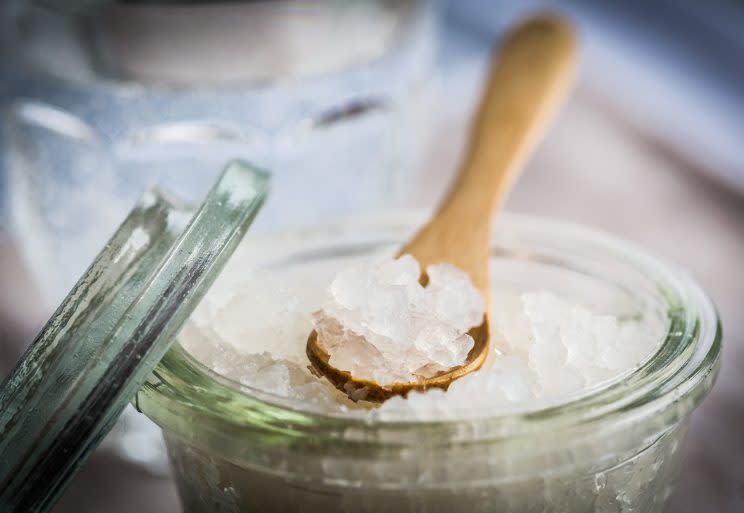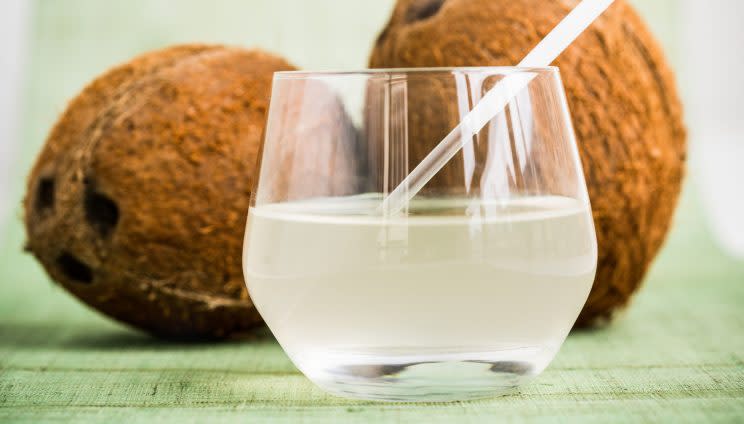5 new health trends you should totally ignore this year (and why)

The new year is traditionally time for a ‘new you’ – and that means that every year, there’s a crop of ‘miracle remedies’ which advocates claim will boost you towards your new self.
In most cases, these health foods won’t do you any harm – and may even do some good – but remedies that the health food world gets excited about aren’t always backed by rock-solid science.
What to drink when you’re not drinking
DIY hot boozy beverages to keep you warm and fuzzy this winter
Here’s some trendy new health foods you will see on the shelves this January – and why you can safely ignore them without too much guilt.
Probiotic water

Probiotic drinks are pretty well-known – but a new trend is probiotic water, created using cauliflower-like ‘grains’ filled with bacteria and yeasts.
The drinks are made using ‘kefir’ – a supplement usually used to create a sloshy, sour, slightly alcoholic yogurt-y drink.
Adventurous souls can pick up ready-made Kefir in the UK from Ocado – or try and make their own (although fans suggest you add fruit to make it actually taste nice).
But probiotic water won’t deliver the same amount of probiotics as a milk drink – so if you’re looking to boost your levels, you might want to stick to a normal probiotic yogurt.
Coconut water

Coconut water has become a massive health trend over the past few months – with marketers hailing it as ‘mother nature’s sports drink’.
It’s hydrating, has lots of potassium, and is naturally fat free – hence why the shelves of health food shops are groaning with the stuff.
What’s not to like?
Well, there’s a fair bit of sugar in coconut milk (less than fizzy drinks or juice, but a fair amount).
Nutritionist Lily Soutter says, ‘It’s so easy to glug down within seconds. Unfortunately, the additional potassium and other electrolytes you receive from this beverage simply do not outweigh the negatives that come with the additional sugar.
Turmeric

Turmeric has been widely hyped as being not just a healthy food – but actually better than some medicines.
Feverish reports have suggested that an anti-inflammatory chemical in turmeric may actually be better for us than 14 different drugs for various conditions.
Naturally, people are already drinking ‘turmeric water’ – a yellow concoction – and various authorities have suggested stirring the stuff into coffee.
But there’s not much clinical evidencce to back this up, Science Based Medicine reports.
The site says, ‘There is little reliable evidence to support the use of turmeric for any health condition because few clinical trials have been conducted.
‘Preliminary findings from animal and other laboratory studies suggest that a chemical found in turmeric—called curcumin—may have anti-inflammatory, anticancer, and antioxidant properties, but these findings have not been confirmed in people.’
Adaptogens
Yes, you read it right, ‘adaptogens’: these are herbs and other plant remedies which supposedly stabilise processes in the body, helping you deal with stress.
The most famous one is ginseng – but in the past year, trendy publications have been hyping others such as rhodiola, bacopa, schisandra, rhaponticum and reishi mushrooms.
The problem is that while the term is widely used to describe herbal remedies, it’s not accepted as medical terminology.
This means that the health benefits of adaptogens are disputed at best – and may be non-existent.
Hemp milk

Yes, it’s milk made out of the same plant people use to produce cannabis – but no, it doesn’t actually get you stoned.
Instead, fans claim, hemp milk is similar to almond milk – just made with the seeds of the hemp plant.
Fans claim it’s high in omega-3 and omega-6 fatty acids, and the full spectrum of amino acids and (crucially) doesn’t have enough of the ‘active ingredient’ THC to either get drinkers high, or make them fail drug tests.
You can buy hemp milk in health food shops – and even Tesco.
The problem is that it’s lower in protein than other ‘nut milks’ – and can be high in fat.



